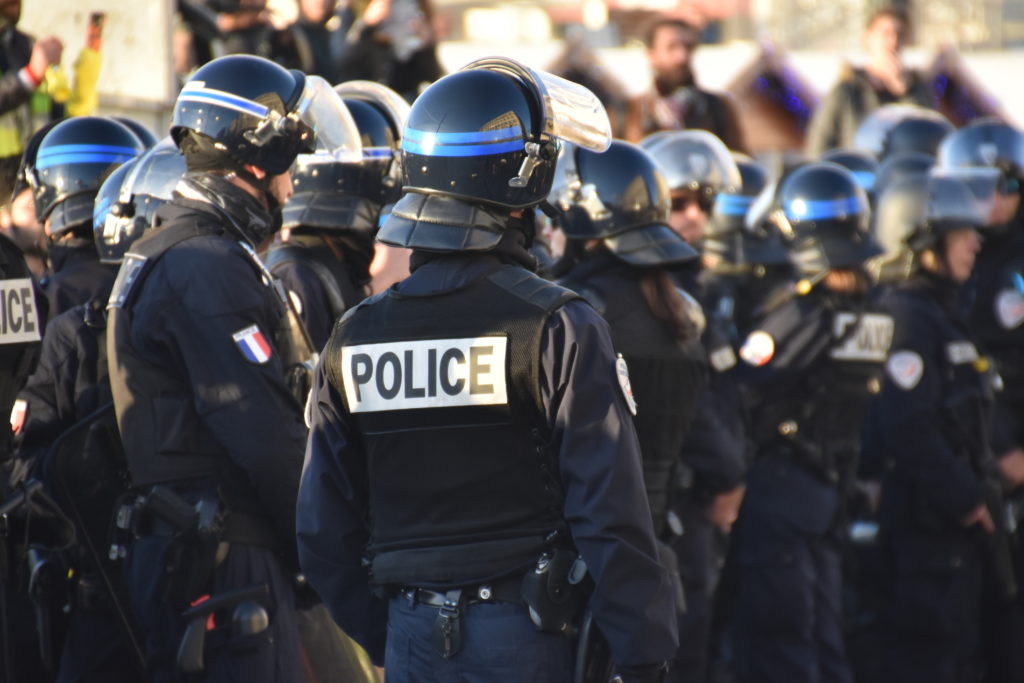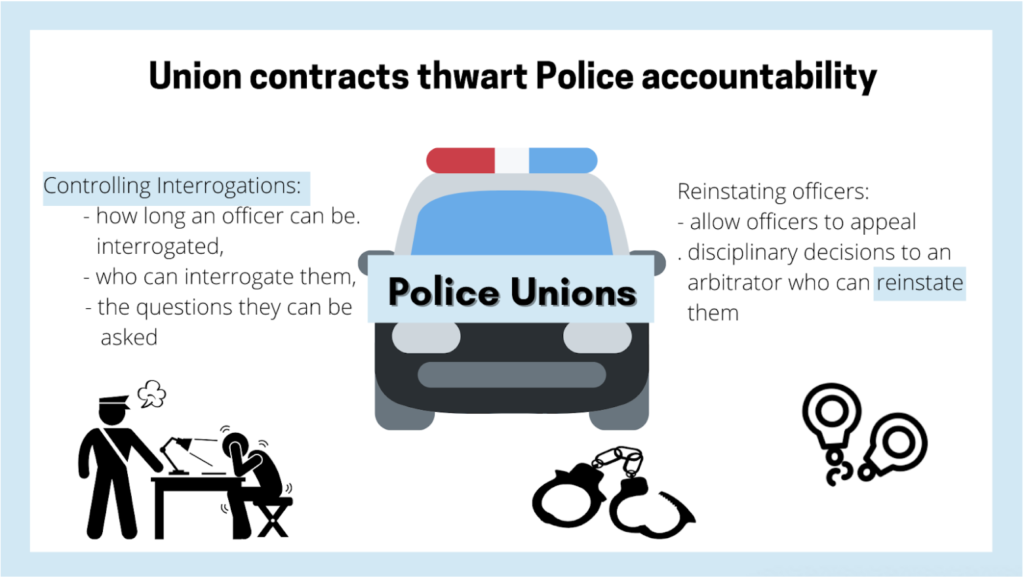
In a recent speech to American mayors this past January, President Biden made significant statements regarding his priorities surrounding the 1.3 trillion dollar American Rescue Plan. Among calls for funding of affordable housing and childcare, Biden most notably advocated for increased finance to police. Facing large backlash from advocacy groups including Movement for Black Lives, Biden’s concessions towards increasing police funding ignites further conversation on the hidden truths of the racial discrimination and corruption present within our police systems.
Especially following the events of the summer of 2020 and most notably the rise of the BLM movement, law enforcement have borne the brunt of the calls for the much needed change within the country. The police are believed by many to be the main culprits in perpetuating racism within the country, and police unions hold a place at the core of the issue, restricting justice through the use of collective bargaining agreements (CBAs). This oftentimes includes clauses protecting employees from terminations, allowing for misconduct records to go unacknowledged, and establishing harmful restrictions around disciplinary negotiations. Their latitude and leverage over police departments and governments make it difficult to hold law enforcement officers accountable for their actions.
A February 2021 New York Times op-ed captures it exactly: “Officer Derek Chauvin, who knelt on George Floyd’s neck for nearly nine minutes, had at least 17 misconduct complaints, though most resulted in no discipline because of the police unions at his backing.” Police unions are so effective at defending their members that officers like Chauvin, who exhibited a pattern of abuse, are left untouched, with fatal consequences for those at the receiving end of their actions. When these officers remain on the streets, they repeat their mistakes while civilians suffer as a direct byproduct of inaction. This is further maintained by the Cicero Institute in September of 2020, when they write, “A recent study of the largest police departments showed that police arbitration in particular guaranteed that almost 25% of all removed officers were later reinstated on the force, some after being fired multiple times.”

Because of the police contracts negotiated by unions, a large number of officers who were terminated from their departments ended up back where they started: on the streets, perpetuating the same behaviors. This clause is only one small part of the entire picture of limiting justice for an institution that is supposed to protect the very same value.
Not only do these CBAs limit how police are reprimanded, but also the status of their future employment. Daniel DiSalvo with the Manhattan Institute points to the “the deletion of officers’ records of past disciplinary actions or accusations of misconduct.” Not only do officers with misconduct concerns have the opportunity to get rehired and keep their jobs, but also get a chance at a clean slate, without any of their past behaviors affecting them any longer. DiSalvo brings forward an actual record of this occurring when he concludes, “Baltimore’s most recent CBA states that an accused officer may request expungement of such matter from any file containing the record of the formal complaint.”
Police unions argue that the public merely has a negative view of them simply because they involve police; the true issue is that police violence is further aggravated by the unions. Christian N. Braunlich, President of the Thomas Jefferson Institute for Public Policy, a public think tank, writes, “Provisions of union contracts negotiated as part of collective bargaining between police unions and local governments frequently provide strong barriers to investigating, disciplining or firing officers for misconduct.” Braunlich essentially affirms the idea that police unions and the contracts they create lead to heightened restrictions on clauses related to reprimand and termination. He goes further to provide real examples of these limitations based on a review of police contracts in 81 of the nation’s largest cities, stating, “50 cities restrict interrogations by limiting how long an officer can be interrogated, who can interrogate them, the types of questions that can be asked. 41 cities give officers under investigation access to information that civilian suspects do not get…”, followed by many more concessions under the categories of restrictions.
Allowing for the removal of such records only leads to heightened tensions between law enforcement and the communities they serve. Knowing that these agreements are held between police departments and unions, the public has no choice but to mistrust their enforcers. It is no surprise that an event such as George Floyd’s death in early 2020 sparked a national outcry for more accountability surrounding police, especially surrounding the conversation of race, when contractual provisions that reinforce the same broken system still exist.

Proponents of police unions attempt to justify their unjust behavior, citing that it is in fact common throughout many public sector unions where they are hardly looked on as problems. However, the real extent of the argument lies in the role of police and how they differ from other public sector unions. Police are inherently able to affect social dynamics and power imbalances–able to seriously inflict harm on citizens at large, by having the power to kill them–which makes the amount of bargaining power they can exercise through their unions dangerous. This combination of law enforcement and the power that unions hold is what creates a harmful mix. It is deeply disturbing that groups with so much power end up prioritizing the interests of their members over the interests of the public and the communities they police, which counters the welfare of U.S citizens.
Black people are disproportionately affected by police brutality, which is evident in the fact that Black men are 2.5 times more likely than white men to be killed by police officers. After the BLM movement stemming from the death of George Floyd in 2020, the country as a whole came to recognize the importance of change in the way policing affects all of us, and specifically the Black community. For example, in 2014 Cleveland Police Officer Timothy Loehmann, who was rehired after being fired for being unfit for duty from his previous suburban policing job, fatally shot 12-year-old Tamir Rice. Racial prejudices and biases plague our systems and ultimately end in bloodshed. Because this system has gone unchecked for so long, innocent lives have continued to be lost to a vicious cycle of abuse, largely in part to the power of police unions.
Police unions must reform the way they currently interact with states and municipalities and how they represent their officers, including restrictions on rehiring police officers who are fired for illegal conduct as well as establishing a national database to track these terminations and misconduct issues, which currently does not exist. As the people who face the byproduct of this flawed system surrounding policing in America, we have a right to demand change; changes that will directly affect our wellbeing and lives. Law enforcement should play a role in our society that upholds justice and values of integrity, which is simply not true of the present system. That police unions are able to take advantage of an already broken system is something that we can no longer allow to go unnoticed or unchanged.
